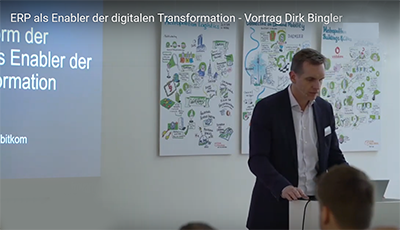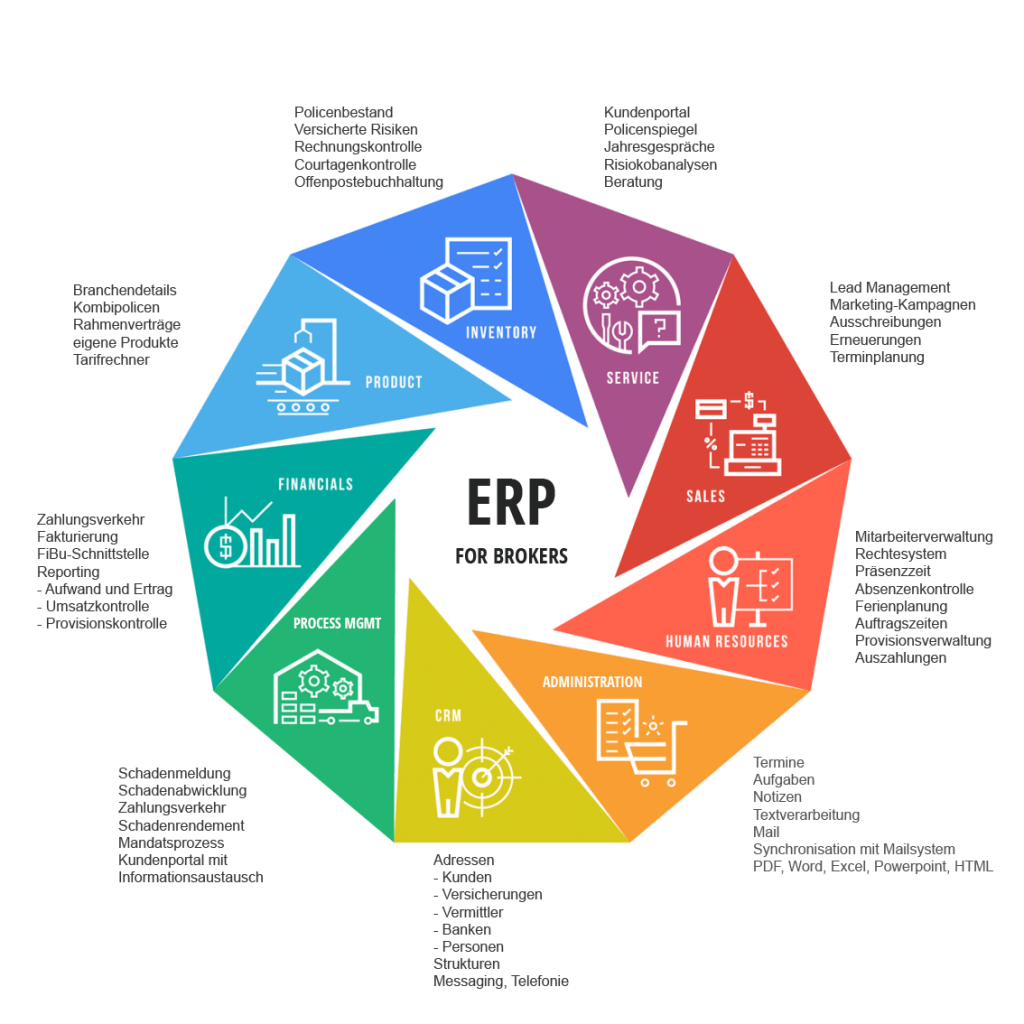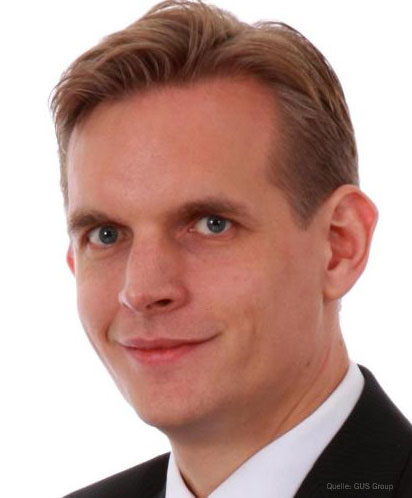Modern ERP systems as the basis for transformation
When ERP systems integrate the building blocks of digitalisation, they become the basis of the digital future. An ERP system represents the „single source of truth“ in a company, it provides the necessary data and services, it secures the business processes, it prepares decisions or even makes them itself, it supports the business management of the digital transformation, it operates on the digital platforms and it maps new business models.

Definition of an ERP (Enterprise Resource Planning) system
The ERP system links a company’s master and transaction data and brings together logistical, business and commercial information. The ERP system provides the context for interpreting this data. It acts as a hub for integration into internal and external platforms and provides its functions as services. In business processes, ERP systems guarantee the security of results and data. In view of increasing networking, they must fulfil the highest security standards and regular audits check the authentication, rights management and encryption of the systems.
ERP systems use artificial intelligence to automate and prepare decisions. The data includes transactions, customer information, social media and sensor information from the Internet of Things. An adaptive control loop ensures that the models and algorithms are constantly learning.
From networking to the business management of digitalisation
The ERP system supports the business management of the digital transformation and ensures that the company’s reorganisation pays off financially. The ERP system aligns all processes with the company’s economic goals. It links the flow of goods and the flow of values, calculates orders and assesses their profitability, and plans production, distribution and sales. From master data to products and services, this system creates an interface to customers and their orders.
On the digital platforms, an ERP system acts as a representative of the company, provides its functions as a service and integrates services from the digital platforms. In the supply chain, it controls all processes across company boundaries.
When it comes to new business models, the ERP system controls and integrates the processes. It creates the basis for personalising products and services. In the service sector, Smart Services optimise the scheduling of important tasks. Other services include forward-looking work and the control of important processes. This is just as true in the service sector as it is in production.
Overall, ERP systems will remain a central component of the IT landscape. Forward-looking ERP providers have already started to adapt their systems to the requirements of the digital working world. This process is likely to continue rapidly in the coming years. An intensive, continuous dialogue between ERP providers, users and market players is important here. Thanks to the global networking of systems and processes, digitalisation opens up unprecedented freedom for everyone involved. A provider that does not know the exact requirements of its customers, target industries and partners is unlikely to have much chance of holding its own in this market in the long term.
ERP for insurance brokers
ERP systems are available for every industry. They each take into account their specific circumstances. While the term ERP is widely used in industry, banks and insurance companies tend to use the term core systems.
BrokerStar by WMC is an ERP system specially designed to meet the needs of insurance brokers, bancassurance brokers and small insurance companies. It covers all essential functional areas in the broker’s day-to-day business. It also offers many interfaces to other programmes such as financial and payroll accounting as well as leading industry applications such as Sobrado, brokerbusiness.ch, One Broker, 3C and others

Functional scope of the Broker ERP BrokerStar by WMC
Source: IT-Matchmaker.news — 31/01/2020 —
ERP as an enabler of digital transformation —
Lecture Dirk Bingler
 Dirk Bingler has been involved in the ERP working group of the Bitkom association since 2014. His topics are the future of ERP systems and their impact on digitalisation. He has over 20 years of experience in the internat. environment at Siemens AG. He has been spokesman for the GUS Group since 2011.
Dirk Bingler has been involved in the ERP working group of the Bitkom association since 2014. His topics are the future of ERP systems and their impact on digitalisation. He has over 20 years of experience in the internat. environment at Siemens AG. He has been spokesman for the GUS Group since 2011.
